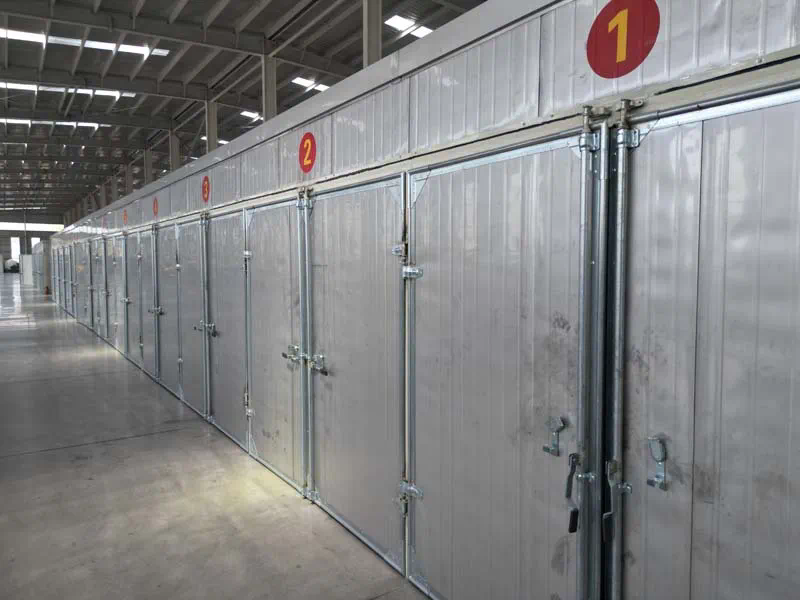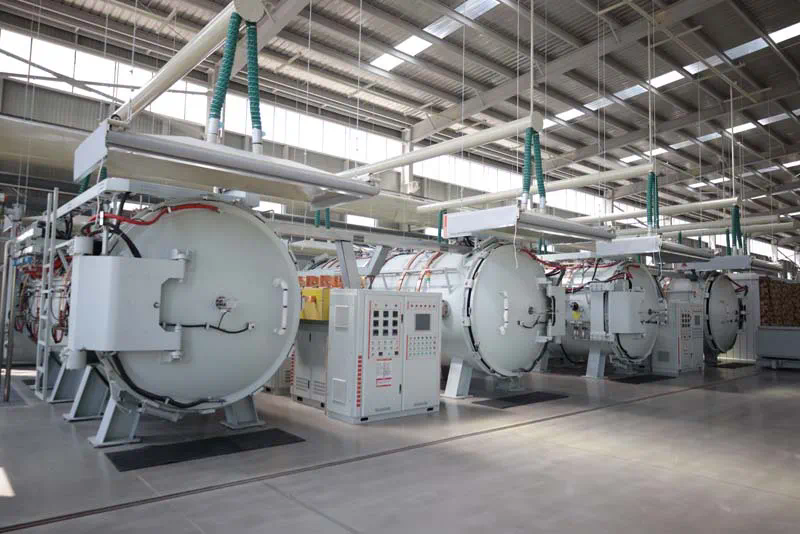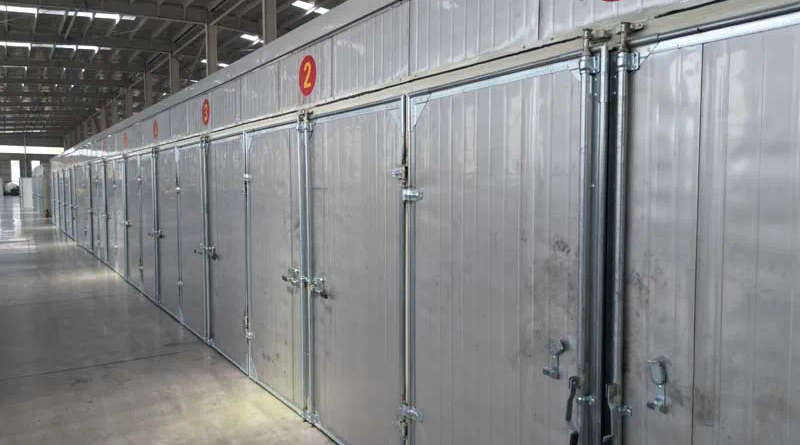How Silicon-Carbide Crucibles Enable Efficient Production in Modern Industry
How Silicon-Carbide Crucibles Enable Efficient Production in Modern Industry
Silicon carbide (SiC) crucibles have emerged as essential components in modern industrial production, playing a pivotal role in several advanced manufacturing processes. From metal casting to the production of semiconductors and solar cells, the versatility and durability of silicon carbide have made it a go-to material for high-temperature applications. This article delves into how silicon-carbide crucibles enable efficient production in various sectors, examining their properties, benefits, and the industrial processes that rely on them.
The Properties of Silicon Carbide Crucibles
Silicon carbide is a compound of silicon and carbon, often found in the form of a crystalline powder. It is renowned for its remarkable hardness, high thermal conductivity, and resistance to thermal shock, which makes it highly suited for crucibles used in extreme temperatures. Crucibles are containers designed to hold molten materials during processes such as casting, melting, or refining metals and alloys. In modern industries, crucibles need to withstand not only high temperatures but also chemical reactions and mechanical stress. Silicon carbide crucibles meet these challenges with remarkable effectiveness.
High Thermal Conductivity
One of the key properties that make SiC crucibles indispensable in industrial settings is their high thermal conductivity. Silicon carbide transfers heat efficiently, which helps to maintain consistent temperature levels across the material being processed. This is particularly crucial in industries like metal casting, where precise temperature control is essential to achieve high-quality products. The superior thermal conductivity of silicon carbide also reduces the risk of overheating, which can cause thermal stress or material degradation.
Exceptional Thermal Shock Resistance
Thermal shock resistance refers to the ability of a material to withstand rapid temperature changes without cracking or deforming. Silicon carbide excels in this area due to its excellent thermal stability. In many industrial processes, crucibles are subjected to rapid temperature fluctuations when they are moved from one environment to another or when the material inside is heated or cooled. SiC’s resistance to thermal shock ensures that the crucible remains intact and functional throughout these transitions, thus improving the efficiency and reliability of the production process.
High Hardness and Abrasive Resistance
Another standout feature of silicon carbide is its hardness. The material is one of the hardest known substances, which allows SiC crucibles to withstand abrasive forces that would otherwise wear down lesser materials. In industries that involve the melting of metals or ceramics, the crucibles are often exposed to rough handling or contact with abrasive substances. The high hardness of silicon carbide ensures that the crucible maintains its integrity even under harsh conditions, reducing the need for frequent replacements and thus improving the overall cost-effectiveness of production.
Corrosion Resistance
Silicon carbide is highly resistant to chemical corrosion, making it suitable for applications involving reactive or aggressive substances. In metal casting, for instance, crucibles often come into contact with molten metals that can be highly corrosive. SiC’s resistance to corrosion extends the lifespan of the crucible and ensures that the molten materials retain their purity without contamination from the crucible material.
Silicon-Carbide Crucibles in Metal Casting and Foundry Operations

One of the most prominent applications of silicon carbide crucibles is in the metal casting and foundry industries. These industries rely on crucibles to melt and pour metals into molds, where the metal solidifies into the desired shape. Crucibles made from silicon carbide provide several advantages over traditional materials like clay graphite or aluminum oxide.

Enhanced Efficiency in Metal Melting
In metal casting, efficiency is critical. The process involves melting metals at extremely high temperatures, often exceeding 1,500°C (2,700°F). Silicon carbide crucibles’ high thermal conductivity enables faster and more even heating of the metal. This leads to reduced energy consumption since the metal reaches the desired temperature more quickly and with less heat loss.
Reduced Contamination and Improved Purity
Silicon carbide is less likely to contaminate the molten metal compared to other crucible materials. In metal casting, contamination can affect the quality of the final product, leading to defects such as brittleness or surface imperfections. The chemical stability of silicon carbide prevents reactions between the crucible and the molten metal, ensuring that the final product retains its desired properties.
Extended Crucible Life and Cost Efficiency
SiC crucibles have a much longer lifespan than many other crucible materials. They are resistant to wear and corrosion, which reduces the frequency of replacements. In industries where crucibles are used continuously, such as foundries and steel mills, the longevity of silicon carbide crucibles leads to significant cost savings. Additionally, their superior thermal shock resistance ensures that the crucibles can handle the stresses of repeated heating and cooling cycles without cracking or breaking.
Silicon-Carbide Crucibles in Semiconductor Manufacturing
The semiconductor industry relies on highly specialized equipment to manufacture integrated circuits and other electronic components. Crucibles made from silicon carbide are increasingly used in the production of silicon wafers and the manufacture of semiconductors due to their ability to withstand extreme conditions and provide precise control over material processing.
Silicon Carbide for Crystal Growth
In the production of semiconductors, especially in processes like Czochralski crystal growth, silicon carbide crucibles are used to melt silicon. During the crystal growth process, silicon is heated to its melting point in a crucible, and a seed crystal is introduced into the molten material. As the crystal grows, it solidifies, and the shape of the crystal is carefully controlled. Silicon carbide’s high thermal stability and non-reactivity make it an ideal material for these high-precision processes.
High Purity and Process Control
Silicon carbide’s purity and chemical inertness are critical in semiconductor manufacturing. Impurities in the crucible material can introduce defects into the final product, affecting the performance of semiconductors. By using SiC crucibles, manufacturers can ensure that the silicon remains uncontaminated, leading to the production of higher-quality, more efficient semiconductor devices. Furthermore, the excellent thermal conductivity of SiC helps maintain stable and uniform heating, which is crucial for achieving the desired crystal quality.
Silicon-Carbide Crucibles in the Solar Industry
The production of solar panels and photovoltaic cells involves the use of high-purity silicon, which is typically melted and cast into ingots or wafers. Silicon carbide crucibles are essential in this process, providing several key advantages that improve efficiency and reduce costs.
Efficiency in Silicon Melting
The solar industry uses high-purity silicon to create the wafers used in solar cells. To ensure that the silicon retains its purity, it must be melted and processed in a crucible that does not contaminate the material. Silicon carbide’s high resistance to contamination ensures that the silicon remains free from impurities during the melting process. The efficient thermal conductivity of SiC crucibles silicon carbide crucible suppliers reduces the energy required for melting, which contributes to a more energy-efficient production process.
Durability and Cost Savings
Just like in the metal casting industry, silicon carbide crucibles offer long-term durability and wear resistance in the solar industry. The longevity of SiC crucibles results in fewer replacements and reduced downtime, leading to significant cost savings for manufacturers. As the demand for solar energy grows globally, the efficient production of photovoltaic cells is critical, and silicon carbide plays a key role in ensuring that manufacturing processes are both cost-effective and sustainable.
Challenges and Future Trends
While silicon carbide crucibles offer numerous benefits, they are not without challenges. One of the main issues is their relatively high cost compared to other materials. Silicon carbide is a premium material, and the initial investment in SiC crucibles can be significant. However, as the durability and efficiency of SiC crucibles lead to long-term savings, many industries are finding that the benefits outweigh the initial costs.
Looking to the future, ongoing research and development are focused on improving the manufacturing process for silicon carbide, reducing costs, and enhancing the performance of SiC crucibles. Innovations in SiC materials, such as the development of more advanced composites or coatings, could further enhance their efficiency and durability in high-temperature applications.
Conclusion
Silicon carbide crucibles have become an indispensable tool in modern industrial production. Their unique combination of thermal conductivity, thermal shock resistance, hardness, and chemical stability makes them ideally suited for a wide range of high-temperature processes. Whether in metal casting, semiconductor manufacturing, or the production of solar panels, SiC crucibles enable more efficient, cost-effective, and high-quality production processes. As industries continue to demand higher performance and lower costs, the role of silicon carbide in enabling efficient production will only continue to grow.
https://icreekside.com/

